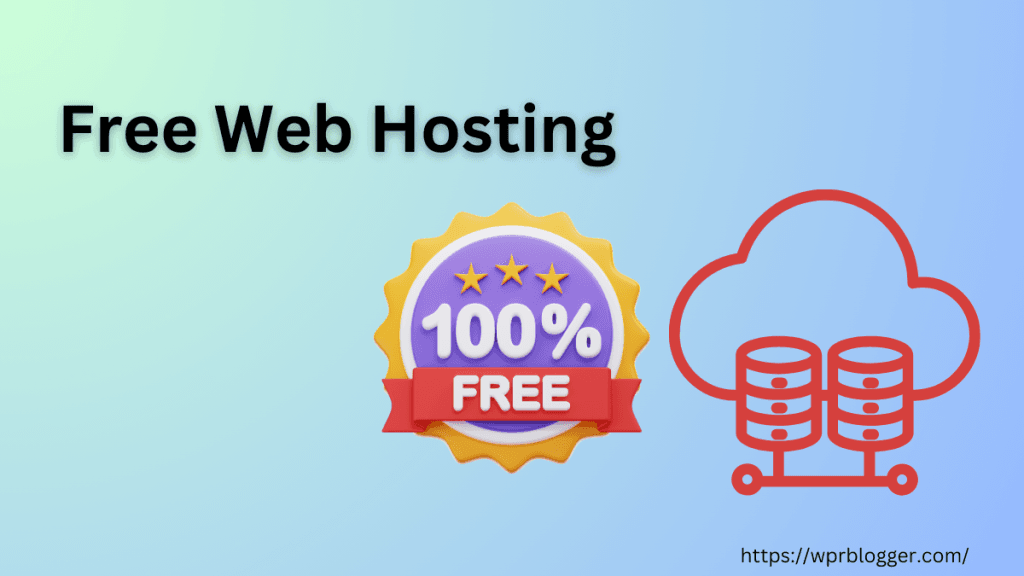If you’re new to WordPress, blogging, and other related topics, you may be unfamiliar with managed WordPress hosting.
You may be confused about whether it is a different type of hosting from the ones you already know, like shared, VPS, dedicated hosting, etc.
In today’s guide, you will learn about managed WordPress hosting, when to consider it, its pros and cons, and some recommendations.
Without delay, let us begin with the most important question
What is Managed WordPress Hosting?
Managed WordPress hosting is an added service or add-on feature and a WordPress-specific tool/feature your web host provides with the hosting package.
Your web host handles most of the technical server-side management, such as automatic updates, regular backups, optimized servers for speed and performance, enhanced security features, etc.
These features or services are specifically tailored to WordPress users’ unique needs. The hosting environments are developed and optimized for WordPress.
The Need for Managed WordPress Hosting?
Traditionally, most hosting types are unmanaged, whether dedicated, VPS, shared hosting, etc.
However, these hosting types, including WordPress hosting, can be managed or unmanaged. It depends on the added services the web host offers. Some web hosts offer managed hosting services for all hosting types – VPS, Dedicated, shared, etc.
For example, WPEngine offers managed shared hosting, handling all server management, security, speed, automatic backup, cache, etc.
Unmanaged hosting means that once you purchase a hosting plan from a web host, you’re responsible for website maintenance, server security, speed, performance, updates, backups, etc.
So, why do you need managed hosting?
You need managed web hosting to save time working on your website and focus more on content and marketing.
Managed hosting can be highly beneficial if you don’t have sufficient technical knowledge about servers, hosting maintenance, and web security but want to build an online presence that allows you to promote your business.
Another reason to consider managed WordPress hosting is the expert support.
Most web hosts offering managed WordPress hosting services provide WordPress-specific expert support. These people know the software inside out and can provide professional support.
Unlike traditional hosting, the support staff tends to support all content management systems. Such an approach could limit their ability to provide tailored customer experiences.
In contrast, managed WordPress hosting allows web hosts to focus on delivering WordPress-tailored support services.
This kind of support can be advantageous to you. Especially if you’re new to WordPress and don’t know much about the technical side of website management.
How Managed WordPress Hosting Works
At its standard, managed WordPress hosting is built on a robust hosting infrastructure explicitly tailored to WordPress websites’ needs.
Web hosts offering this service combine technical expertise, optimal server performance, and a wide range of tools and features, ensuring top-tier hosting performance, security, and ease of use.
Managed WordPress hosting works on the same infrastructure as other types of hosting. The main difference is that the web host offers additional hosting features and services that make running WordPress sites less stressful for the user.
These additional features or tools vary among web hosts. There are no specific features or services that a web host must offer.
However, based on industry standards and what I have found in common services and features among managed WordPress hosts, here are some characteristics or attributes of managed WordPress hosting:
- Built-in Cache Mechanism – Most WordPress hosting has a built-in advanced server-side cache mechanism or preinstalled cache plugin to improve website speed and performance. Your web host provides object and page cache, reducing server response time and loading pages faster for visitors.
- Staging Environments – Staging is another feature common among WordPress hosting. Staging hosting environments allow you to safely test website changes, like themes, new designs, plugins, security, and updates, before making them live on the production site.
- Automatic Updates – This is one of the core services of managed WordPress hosting. Your web host ensures WordPress core software, plugins, and themes are automatically updated when the developers make one available.
- Automatic/Regular Backup – Your website files, content, database, and configurations are automatically backed up in case of accidental data loss or website crashes. You can safely restore your site in one click and continue where you left off. Web hosts like Cloudways automate daily backups of your entire website.
- Security Features – WordPress sites are vulnerable to attack; your web host ensures your website is safe and protected from all possible security breaches such as DDoS, Malware, hackers, etc.
- Analytics and Monitoring – Monitoring hosting resource usage, traffic, disk usage, access to log, etc., is vital to keeping a healthy server and ensuring optimal performance without downtime. Most managed WordPress hosting has this feature for you.
- Content Delivery Network (CDN) – Several managed web hosts have integrated CDN features into their infrastructure. It helps deliver website content globally, reducing latency and improving website loading speed. CDN caches static website assets like images and style sheets at different edge servers across the globe, making the request close to the user.
The main idea or purpose of managed WordPress hosting is to help users with the server side and management tasks involved in running a website, allowing them to put more effort and time into the business side.
Also, managed WordPress hosting eliminates guest work or the need to secure and optimize your website yourself. You can trust your website’s security, speed, and performance to more competent people.
It also allows you to gain access to high-priced tools at a very cheap rate or even for free. For example, some web hosts partner with relevant service providers to make their tools/services available to the web host user at a cheaper rate.
A good example of this deal is the Cloudways partnership with Astra Pro and the Cloudflare Enterprise add-on.
Cloudways users who sign up through a dedicated promo page can access the Astra Pro add-on for a 1-year free license. Thereafter, a subscription to a $4 monthly plan of the Astra Pro add-on will be included in your Cloudways invoice.
Also, Cloudway’s partnership with Cloudflare allows its users to enjoy Cloudflare Enterprise add-on solutions at $4.99 monthly. If you have 25 websites with Cloyudways, it costs $1.99 monthly per website.
These benefits are only possible with managed hosting. You’ll spend roughly $205 monthly, minus hosting fees if you purchase these services separately.
How to Choose The Right WordPress Managed Hosting
Choosing the right web host for your website requirements is easier said than done.
Theoretically, you can list every feature and resource you need to make the right choice. Whether your host offers such features and how effective they are is another matter entirely.
Any web host can label their hosting service as “managed hosting.” In reality, however, the service is anything other than managed hosting.
This is why you must be careful, research, ask questions, engage with customer reps, and look closely at the features a potential web host offers.
You can even request feedback from other users. Online communities are valuable places to find people using or currently using the hosting service you’re about to purchase.
Here are some helpful tips for choosing the right managed WordPress hosting plan.
Identify Your Hosting Needs
Knowing your website needs is the first step towards picking the right managed web host.
You should identify your website requirements, including estimated monthly traffic volume, required storage space, specific hosting features, and plugins or themes you plan to use.
Knowing your website needs will help you narrow your hosting choice and direct you to the right web host while spending less time researching.
Available Hosting Features
Besides the standard hosting features, such as SSL certificate, bandwidth, SSD storage, etc., look for advanced features your web host offers.
Before purchasing, you must ensure the web host has the features you’re looking for. If you’re unsure whether the web host offers the particular hosting features you want, ask the support person.
Server Performance
The effect of other speed and performance techniques depends on your web host’s underlying server infrastructure performance.
If your web host server is slow, there is little you can do to optimize your website.
You must choose a web host offering high-performance server infrastructures, including server-level cache mechanisms, CDN, Varnish, object cache, files, code optimization, etc.
Security Features
Security features are one of the benefits you get from a managed WordPress hosting plan.
Look for a web host that offers advanced web security plugins and features such as Intrusion Detection Systems (IDS), malware scanning, a firewall (WAF), bot, and DDoS attack protection.
These are essential website security features that protect and help mitigate the effects of an attack in case of vulnerability.
Support
Getting helpful support is as important as the quality of hosting your web host offers.
While support is a tricky aspect of web hosting quality, you should look for a web host offering 24/7/365 support, ideally onsite live chats, ticket support, community forums, and phone calls.
Consider engaging the support reps if you’re unsure how responsive and supportive they are. At least, as you engage with the support, take note of response time, attention to detail, etc.
Choose a web host offering WordPress-specific expert support that can assist with technical issues, troubleshooting, and guidance.
Pricing and Value
While comparing hosting prices from several web hosts is good, don’t base your hosting choice solely on price.
You should look for a hosting package that offers good value for your money. If it sounds too good to be true, it probably is.
Hosting package prices should reflect the features and quality of service rendered. Consider additional services or features you might need and their costs, which are not included in the standard hosting plan.
For example, some web hosts offer premium support plans, which cost extra money, and features that require separate purchases.
You must consider all these when searching for the best web host for your website needs.
Scalability and Support for Growth.
When you start an online business, an entry-level hosting package might be sufficient for your website.
However, as you put more effort into marketing and investing in your blog, you will probably experience growth. You might need more hosting resources or update your plan at this point.
Choose a web host that allows you to scale hosting resources without experiencing downtime and provides a seamless migration process to a higher hosting plan.
Whatever online business you operate, your web host should support your long-term goals.
Resource Usage Policy
Transparency is essential in the web hosting industry. Unfortunately, some web hosts never openly disclose resource allocation, such as bandwidth limits, CPU power, and RAM size and usage.
If something is unclear or ununderstood, or you can not find the information on your host website, consider asking for support or moving on to the following web host.
Small things like this can become points of dispute in the future, and you might be unable to present a valid case. Since you never considered reading or being aware of the policy before signing up.
Now that you know what to look for in a web host, you can begin the search for a suitable hosting plan.
To begin your search, I recommend you start with our top web hosting for agencies and our list of top WordPress hosting for high-traffic sites. While these hostings target specific market needs, they offer beginner entry-level hosting plans.
In addition, here are some excellent web hosts to consider:
Pros and Cons of Managed WordPress Hosting
Though there is no hard and fast rule about what managed WordPress hosting should be, every host determines what they offer in their managed hosting package.
However, based on experience and common industry standards, most web hosts will provide these services and features:
Pros
Cons
Conclusion
There are many options when searching for a suitable web host or trying to understand managed WordPress hosting. Too many choices can also lead to confusion and overwhelm.
This is why an article like this can help provide great insight into what makes a web host an excellent option. Features and tools to look for, and sharing more on how managed hosting works.
Still, as good as it is, not everyone should consider managed WordPress hosting. If you’re a beginner building your first WordPress blog, shared hosting is your ideal hosting plan.
It is more affordable, easier to use, and requires less learning curve, allowing you more control over your blog. It will also help you learn website management, especially server-side management.
The experience you acquire while managing the server can be of great value in the future. These are priceless experiences or knowledge that money can’t buy.
Remember to leave your comment in the box below if you have any concerns or questions or just want to say hi! I’m here to help.



